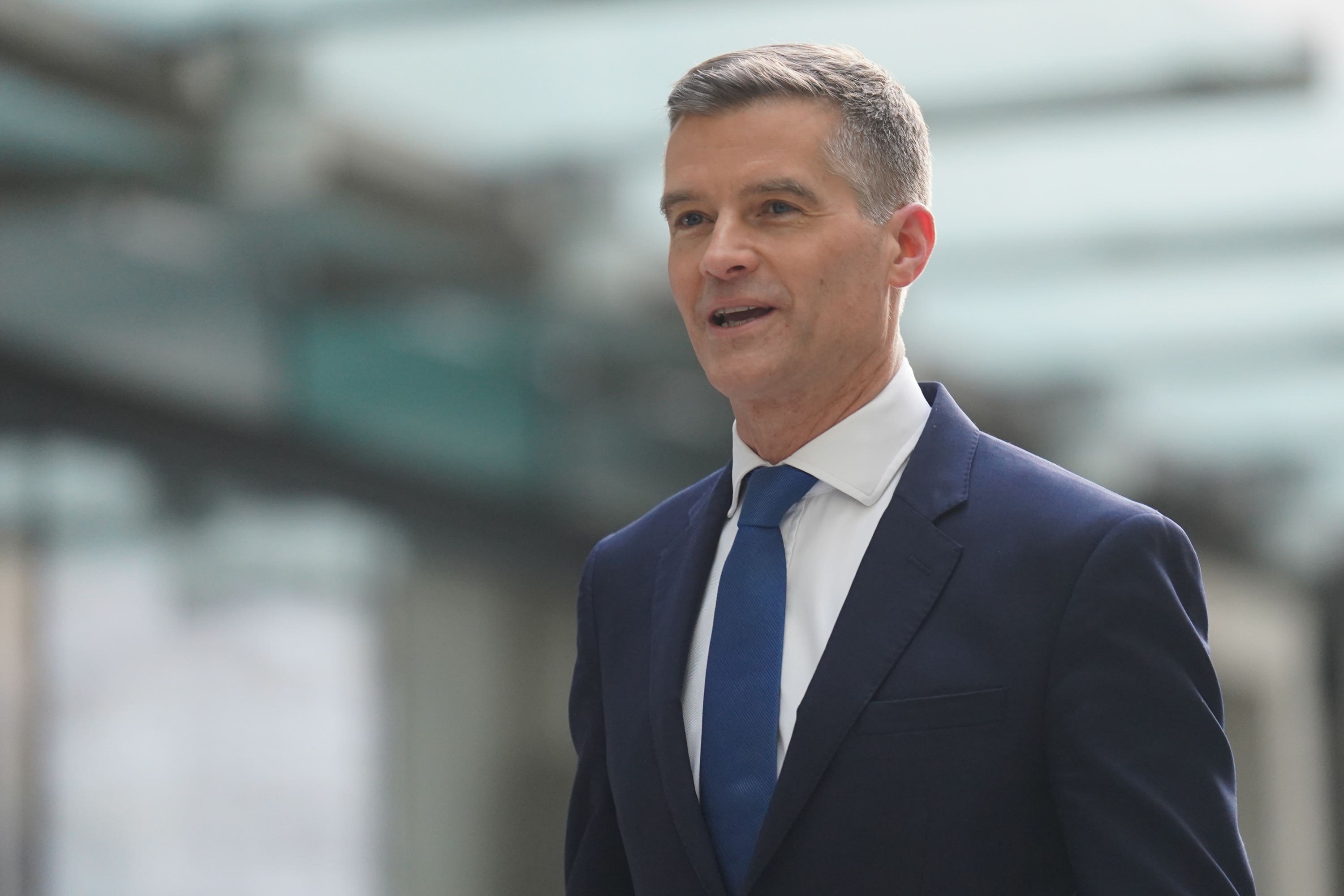Train operators given ‘revised mandate’ for latest union talks, Mark Harper says
The Transport Secretary said rail companies had been given his ‘permission’ to make the revised offer to unions.

Your support helps us to tell the story
This election is still a dead heat, according to most polls. In a fight with such wafer-thin margins, we need reporters on the ground talking to the people Trump and Harris are courting. Your support allows us to keep sending journalists to the story.
The Independent is trusted by 27 million Americans from across the entire political spectrum every month. Unlike many other quality news outlets, we choose not to lock you out of our reporting and analysis with paywalls. But quality journalism must still be paid for.
Help us keep bring these critical stories to light. Your support makes all the difference.
Train company bosses will be working with a “revised mandate” which could include a better pay offer as they enter the latest round of talks with unions, the Transport Secretary has suggested.
Mark Harper said train operators have been given his “permission” to make a new offer to the trade unions.
The minister claimed he had made sure a “better deal” on pay was available to rail workers, as he continued to make the case for changing operating conditions on the railways.
Mr Harper’s claims come as train operating companies, Network Rail and the trade unions are set to start the next round of talks over pay and conditions on the railways in an attempt to end the ongoing industrial action.
I made sure after I met the trade union leaders that there was a better deal on the table for rail workers
Mr Harper told Sky News: “The train operating companies have got permission from me to make a new offer to rail unions.
“That is what they are going to be doing. That is what I was asked to do, that is my role in the process.
“But it is important now that we give some space for the employers, so that is the train operating companies and Network Rail, to continue having discussions with the RMT to try and reach a conclusion.”
Pressed about whether his role in giving permission meant he had control over the negotiations, Mr Harper said: “They have got a revised mandate to make an offer to the trade unions, to cover both pay and also importantly reform.”
“They will be having those discussions this coming week,” he added.
I hope there will be a deal. I am not going to put an artificial timetable on it. I think as soon as you start putting artificial deadlines on things you tend to end up with a bad deal
Reports in the Financial Times newspaper in December suggested ministers have previously intervened to block a higher pay offer to rail workers.
Pressed about whether more money had been offered to the unions, Mr Harper told the BBC: “I made sure after I met the trade union leaders that there was a better deal on the table for rail workers.
“But remember there is another side to it… which is also it is important that we get generational reform both on the maintenance side of the operation for Network Rail but also for the rail companies.
“I want a proper seven-day railway where you don’t have to run a rail service by depending on the goodwill of people turning up on their days off.”
Asked if he was optimistic that industrial action could soon be brought to an end, the minister said: “I hope there will be a deal. I am not going to put an artificial timetable on it. I think as soon as you start putting artificial deadlines on things you tend to end up with a bad deal.”
As nurses meanwhile continue their dispute over pay, the Health Secretary has reportedly told unions he wants to persuade the Treasury to offer higher pay rises to NHS workers, while nurses have threatened to double down on strike efforts next month.
Unison’s Sara Gorton has revealed that Steve Barclay’s tone has been “very different” in negotiations this week, and he privately told unions he wanted to secure a better pay offer from Number 10, according to The Observer.
Ms Gorton told the newspaper that Mr Barclay had “talked about asking us to help make the case to the Treasury for the investment needed”.
She added that the Health Secretary appeared willing to talk about more pay for this year for all NHS staff except doctors.
The Observer suggested this had opened up a Cabinet split, with Prime Minister Rishi Sunak and Chancellor Jeremy Hunt refusing to move from their stance that the Government cannot make health workers an improved offer.
The Royal College of Nursing (RCN) has warned that double the number of nurses will be asked to strike in early February in a bid to increase pressure on the Government.
This comes as ministers push for new laws requiring minimum levels of service on strike days – legislation which is expected to take around six months to pass through Parliament.
The Strikes (Minimum Service Levels) Bill is due to be considered again by MPs on Monday.
Nurses in England will return to picket lines on Wednesday and Thursday, accusing the Government of having “failed to act” after their historic industrial action in December.
Civil servants are the latest to join the ranks of striking workers, amid growing industrial unrest which has seen stoppages across the country including by ambulance workers, staff on the railways and Border Force employees.
This week will also see London bus workers at Abellio strike on Monday and Thursday.
North of the border, members of the Educational Institute of Scotland will engage in further strike action this week.